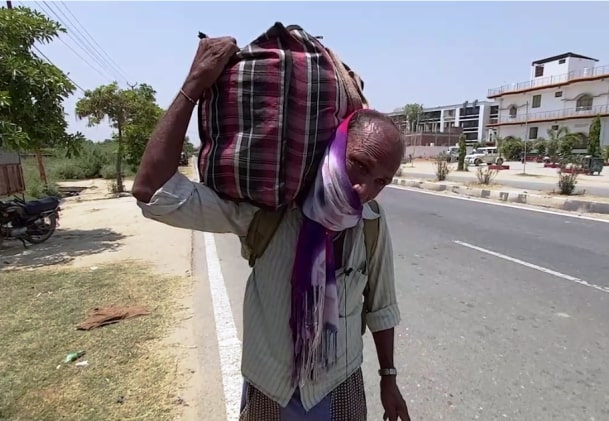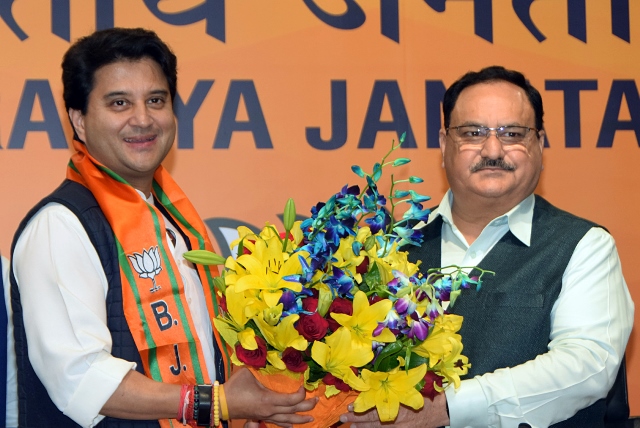Forget the
Congress and Jyotiraditya Scindia drama. The Congress already seems to be in
political ICU facing last rites having been crushed by BJP’s Congress-Mukt
campaign. The next on the BJP’s predatory game are the regional parties. There
is much nervous ness within the smaller regional parties as loyalties among
their members are being tested.
The members of the smaller parties are easier to “manage” and more susceptible to allurements and pressure tactics generally employed to “win” over vulnerable opponents. The saffron party made a beginning in this direction last year when four MPs from the Telugu Desam Party and three from the Samajwadi Party switched loyalties to the BJP. However, the regional parties can expect to feel the heat once the BJP leadership is satisfied that it has succeeded in its mission of decimating the Congress.
The
immediate provocation for engineering these defections is to push up the BJP’s tally in the Rajya Sabha where it
does not have a majority. At the same time, the saffron party is also busy
toppling state governments as it did in Karnataka last year and is currently in
the process of bringing down the Kamal Nath government in Madhya Pradesh.
The BJP
felt cheated when it was prevented from coming to power in Karnataka in 2018
when the Congress and the Janata Dal (S) teamed up to form the government. The
BJP had since then been waiting for an opportunity to get back at the
Congress-JD(S) combine. It eventually met with success last year when sixteen
MLAs from the Congress and the JD (S) resigned and crossed over to the BJP,
enabling it to form the government in the Southern state.
In Madhya
Pradesh, the drama unfolded when former Congress minister Jyotiraditya Scindia
decided to switch sides when he found himself being sidelined by his party
rivals – chief minister Kamal Nath and senior leader Digvijaya Singh. Denied
political space in his home state and a Rajya Sabha seat by the Congress, Scindia
chose to walk out along with his supporters. Sixteen Congress MLAs have sent in
their resignations and were airlifted by the BJP to Bengaluru where they have
been sequestered in a luxury resort.
At the same time, the Congress is facing trouble in Gujarat where five MLAs have put in their papers, jeopardizing the party’s chances of winning two Rajya Sabha seats in the March 26 election. The Congress has since been struggling to keep its remaining legislators safe.
These
developments are predictably being followed closely by the regional parties
which realise that they are next on the BJP’s hit list. The Samajwadi Party and
the Telugu Desam Party have already lost seven MPs to the saffron party and
they don’t know
what awaits them in the coming days. With West Bengal assembly polls due next
year, the Mamata Banerjee-led Trinamool Congress has reason to worry. As it is,
a number of Trinamool members had crossed over to the BJP in the run-up to last
year’s Lok
Sabha election and the party has every reason to believe the BJP will pull out
all stops to weaken Mamata Banerjee before the assembly polls.
Moreover,
regional parties feel that the weakening of the Congress and the emergence of a
unipolar polity will hit them hard. Although these parties have been battling
the Congress in their respective states, there is also a realization that if
the grand old party faces extinction, the possibility of putting together an
anti-BJP opposition front will become more difficult. Any such grouping
necessarily needs the Congress to anchor it. However, if the Congress is
rendered incapable of playing that role, it will become so much more difficult
for the regional parties to mount a combined offensive against the all-powerful
BJP because there will be no nucleus around which the parties can coalesce.
And this
will make the regional parties more vulnerable to the BJP’s predatory moves. These parties
will then have a choice of playing second fiddle to the BJP or facing erosion
in its ranks. This situation suits the BJP as its leaders privately admit that
they find it easier to deal with regional parties because they are “ideologically flexible” and purely focused on the
interests of their respective states. Consequently, they can be co-opted with
the lure of Central grants and special projects as regional leaders are made to
realise the benefits of keeping the Centre on their right side. Odisha and
Andhra Pradesh chief ministers Naveen Patnaik and Jagan Mohan Reddy have
understood this well as their parties extend full support to the Modi
government and are not inclined to rock the boat at the Centre.
Regional
parties, especially the smaller ones, often stand to lose their identity and
their political space if they throw their lot with the larger national party.
The Uttar Pradesh-based Apna Dal is a case in point. The BJP wooed the party
and even gave a ministerial berth to its leader Anupriya Patel in order to get
the support of the Patels in the electorally-important Hindi heartland state of
Uttar Pradesh. But now that the Patels have shown a preference for the saffron
party, Apna Dal and Patel now find themselves sidelined in the BJP-led National
Democratic Alliance.
From all
accounts, it appears the regional parties face tough times ahead. BJP the
predator is on the hunt and they appear to be easy game after Congress.

